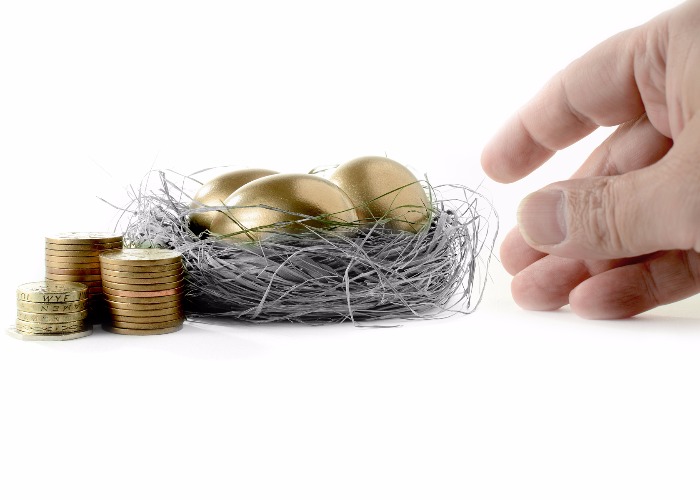Pension freedoms: 5 things to consider before dipping into your funds

From taxes to benefit changes, accessing your pension can have a huge knock-on effect on your finances. Here’s what you need to consider before cracking open that nest egg.
Once you turn 55, you can withdraw up to 25% of your pension savings tax-free under pension freedoms introduced in 2015.
While this offers some much-needed flexibility for your retirement plans, you need to think carefully before accessing your funds, or you could trigger a host of unintended financial consequences.
Here are five things you need to consider.
But first, take a look at the best ways to make your pension pot work for you and not the banks.
1. How much tax will you pay?
Before you take any money out of your pension, make sure you understand exactly how it might be taxed.
Unless you are over 55, it is highly likely you will face punitive tax charges of up to 55% if you take money out of your pension.
If you’ve been told you can take money out before you turn 55 without paying tax, it is probably a scam.
But even if you are over 55, you could still pay tax.
While the first 25% of your pot is tax-free, take more than that and you’ll pay Income Tax at your marginal rate.
Plan for your future: visit the loveMONEY investment centre (capital at risk)
2. Will it affect your tax bill in the future?
The 25% of your pension that you can take tax-free doesn’t have to be taken as a single lump sum, and you don’t have to take it when you are 55.
If you are likely to still be liable for Income Tax after you retire, you may want to wait and use that tax-free amount to pay yourself an annual tax-free lump sum.
Also, when you take tax-free money from your pension it doesn’t count as income, so spreading out these payments could help reduce your overall Income Tax bill once you are retired.
3. Will you still be able to make pension contributions?
Do you want to continue paying into your pension after you’ve taken some money out of it?
If you do, the first thing to do is check your pension provider allows you to continue making contributions.
Then you also need to consider the tax implications.
Most of us are able to pay as much as £40,000 a year into a pension and earn tax relief on that money.
But once you’ve accessed your pension, your annual allowance may drop substantially.
The ‘Money Purchase Annual Allowance’, as it is known after you’ve accessed your pension, is just £4,000, which could seriously curtail your ability to continue contributing to your pension.
Pay more than that into your pension and you won’t receive any tax relief on the additional amount, and you will also have to pay an allowance charge.
Bear in mind the annual allowance drops for all your pension pots – not just the one you accessed.
Plan for your future: visit the loveMONEY investment centre (capital at risk)
4. Will it affect your benefits?
If you claim any means-tested benefits, check how these will be affected before you take any money out of your pension pot.
Dipping into your pension could affect your eligibility for any of these benefits:
- Housing benefit;
- Income support;
- Income-based Jobseeker’s Allowance;
- Income related Employment and Support Allowance;
- Pension Credit
How it affects them will depend on a number of factors, including your age and how much you take out of your pension.
If you are claiming means-tested benefits, you should seek expert advice before you access your pension.
5. Can I afford to take this cash?
Taking money out of your pension could put a serious dent in the income you’ll enjoy once you retire.
Not only will you have reduced the overall capital in your pension, but you are also reducing your future growth as there is less invested.
You are also vastly reducing how much you can subsequently pay into your pension, as we mentioned earlier.
Make sure you do your sums and can afford to lose that money from your pension before you grab it.
Comments
Be the first to comment
Do you want to comment on this article? You need to be signed in for this feature